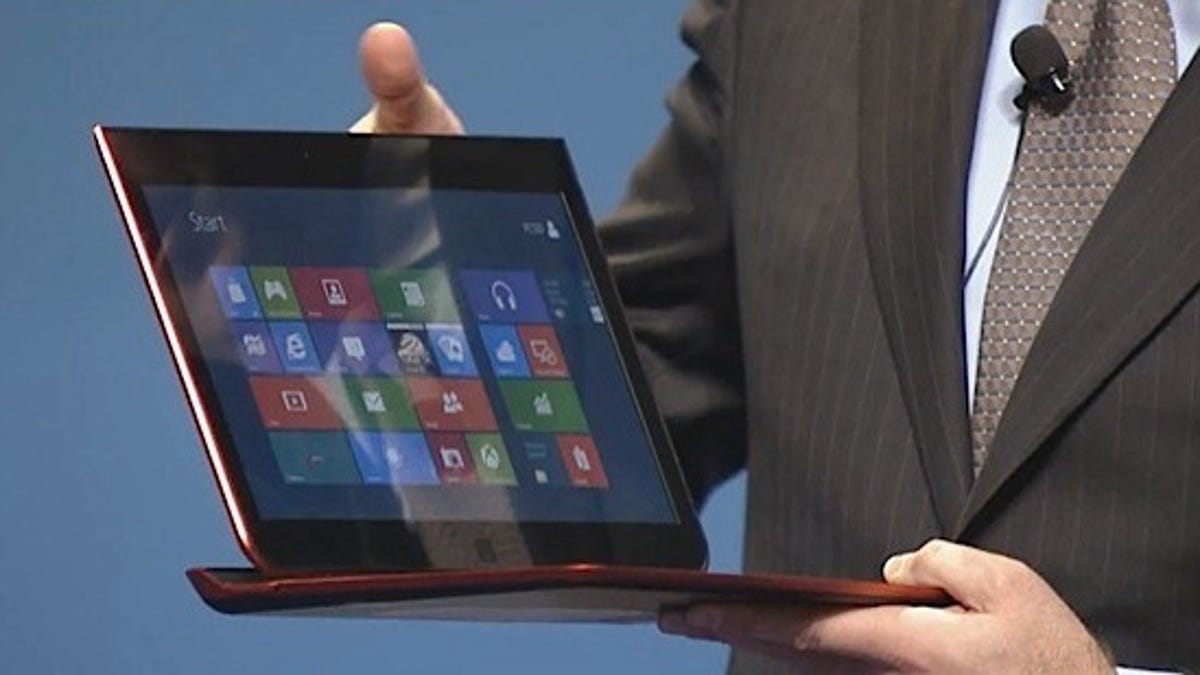Is this the future of Windows 8 ultrabooks?
Intel thinks the Windows 8 hybrid ultrabook is the way to go. Is it?

Intel showed off the latest hybrid ultrabook concept at company confab this week. But it's been preaching this best-of-both-worlds religion for a while now.
Intel's new PC business chief, Kirk Skaugen, is making the case for hybrids this week in Beijing at an Intel conference. But CEO Paul Otellini has been proselytizing the hybrid experience since last fall and other Intel executives, like Erik Reid, have been chiming in at every opportunity too.
Here's the pitch: in "consumption" mode, it's a tablet (see photos) and in productivity mode it's a standard laptop. And throw in the fact that hybrids use the latest high-performance Intel Ivy Bridge processors and run the Windows 8 Metro interface.
The linchpin is Windows 8. The hybrid experience won't work on Windows 7. Just ask Dell. Its Inspiron Duo hybrid was not a success, mostly because it was burdened with Windows 7 (and ran that demanding operating system on top of a underpowered Intel Atom processor).
The should change with Windows 8 on Ivy Bridge. Mark Skaugen's words. When showing off the Lenovo Yoga hybrid running on that processor, he said: "[It has] the Windows 8 experience and all of the responsiveness of that." Translation: it's a much better touch interface than Windows 7.
So, is this a viable future for the Windows 8 laptop? Or is better to go with more purist tablet and ultrabook designs?

